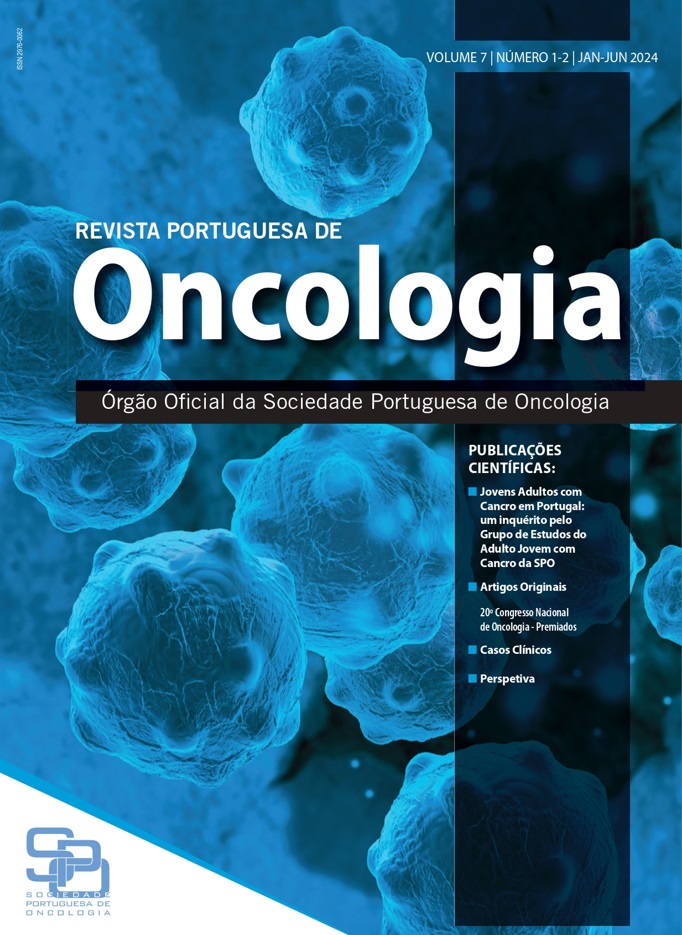A difficult management case of severe hepatotoxicity with Ribociclib
Keywords:
Metastatic breast cancer, CDK inhibitors, liver toxicity, RechallengeAbstract
Cyclin-dependent kinase 4 and 6 inhibitors (iCDK4/6) combined with endocrine therapy is currently the standard of care treatment for metastatic hormone receptor-positive, HER2-negative breast cancer. Due to limited comparative data on their efficacy and diverse toxicity profiles, agent selection remains a challenge. Liver toxicity is common with these agents, but is often manageable. In this article, we report the case of a metastatic breast cancer patient presenting a persistent severe liver toxicity while receiving ribociclib and letrozole. Switching to palbociclib, associated with lower liver toxicity, enabled successful management. Palbociclib demonstrated sustained efficacy, emphasizing the careful consideration in agent selection and sequential use to address toxicity with CDK4/6 inhibitors.
Downloads
References
Gennari, A., André F., Barrios C.H., Cortés J., de Azambuja E., DeMichele A., et al. “ESMO Clinical Practice Guideline for the Diagnosis, Staging and Treatment of Patients with Metastatic Breast Cancer.” Annals of Oncology 32, no. 12 (2021): 1475–95. https://doi.org/10.1016/j.annonc.2021.09.019.
NCCN Clinical Practice Guidelines in Oncology.Breast Cancer. V4.2023. https://www.nccn.org/professionals/physician_gls/pdf/breast.pdf . Accessed August 13, 2023.
Shah M., Nunes M.R., Stearns V. “CDK4/6 Inhibitors: Game Changers in the Management of Hormone Receptor–Positive Advanced Breast Cancer?” Oncology (Williston Park). 2018 May 15;32(5):216-22. PMID: 29847850; PMCID: PMC6424488.
Farhat F., Mohammad T., Ali K., Majeda A., Joseph K., Tarek A., et al. “Palbociclib Safety and Efficacy beyond Ribociclib-Induced Liver Toxicity in Metastatic Hormone-Receptors Positive Breast Cancer Patient.” Anti-Cancer Drugs 31, no. 1 (2020): 85–89. https://doi.org/10.1097/cad.0000000000000845.
Fuentes-Antrás J., de Luna A., López de Sá A., Ocaña A., García-Sáenz J.Á., Moreno F. “Safety and efficacy of cyclin-dependent kinase inhibitor rechallenge following ribociclib-induced limiting hypertransaminasemia”. Breast. 2020;54:160-163. doi:10.1016/j.breast.2020.10.007
Spring L.M., Wander S.A., Zangardi M., Bardia A. “CDK 4/6 inhibitors in breast cancer: current controversies and future directions”. Curr Oncol Rep 2019;21:25. https://doi.org/10.1007/s11912-019-0769-3.
Petrelli F., Ghidini A., Pedersini R., Cabiddu M., Borgonovo K., Parati M.C., et al. “Comparative efficacy of palbociclib, ribociclib and abemaciclib for ER+ metastatic breast cancer: an adjusted indirect analysis of randomized controlled trials”. Breast Cancer Res Treat 2019; 174:597–604. https://doi.org/10.1007/s10549-019-05133-y
El Rassy E, Bakouny Z, Assi T, Kattan J. “Different inhibitors for the same target in metastatic luminal breast cancer: is there any difference?” Future Oncol 2018: 14:891–895. https://doi.org/10.2217/fon-2017-0532
Hortobagyi G.N., Stemmer S.M., Burris H.A., Yap Y-S., Sonke G.S., Paluch-Shimon S., et al. “Ribociclib as first-line therapy for HR-positive, advanced breast cancer”. N Engl J Med 2016; 375:1738–1748.
Finn R.S., Martin M., Rugo H.S., Jones S., Im S.A., Gelmon K. et al. “Palbociclib and letrozole in advanced breast cancer”. N Engl J Med 2016; 375:1925–1936
Meynard L, Grellety T. “CDK 4/6 inhibitor successful rechallenge after limitinghepatic toxicity”. Breast J 2020;26:255e7. https://doi.org/10.1111/tbj.13532.










